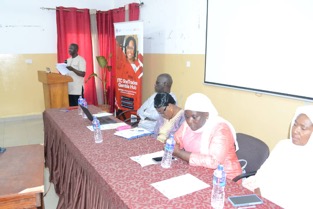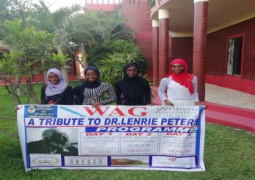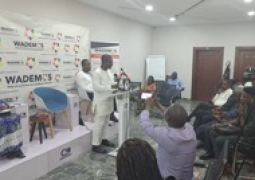
The report, officials said, was a study to assess the level of involvement of women-led businesses in public procurement in the Gambia.
The validation session which was organised by GPPA, was held at the National Nutrition Agency (NaNA) Conference Hall.
The research, they went on, aimed to identify areas where women-led businesses have the potential to compete in public procurement and to develop policy and capacity-building interventions that will promote the active participation of women in this sector.
The convergence, they added, also provided a platform for discussion, feedback, and collaboration on the findings of the draft report where stakeholders effectively contributed in shaping policies and interventions that support women-led businesses in their journey towards greater participation in public procurement.
Speaking at the forum, Ibraima Sanyang, the director of Procurement Policy and Operations at the GPPA underscored the significance of the convergence, saying: “The occasion is another milestone in our collective journey towards making public procurement more inclusive, efficient, and equitable.”
“The study also delves into the critical issue of women-led businesses and their participation in government contracts, particularly in terms of procurement opportunities and the challenges they face.”
He added: “Our aim is not just to identify these challenges, but to propose actionable solutions that can reshape the landscape of public procurement in The Gambia, ensuring fair access for all, including women-led businesses and other marginalized groups.”
The findings of the study, he said, will present a range of insights, ranging from the types of procurement contracts that women-led businesses are more likely to access, to the barriers they encounter, such as limited access to information, networking opportunities, and capital.
Naomi Williams, the deputy permanent secretary at the Ministry of Gender, Children and Social Welfare, said: “The draft report discussed, represents a thorough examination of the current state of women’s involvement in public procurement. It highlights both the challenges that women-led businesses face and the opportunities that lie ahead.”
She maintained that the document was the result of hard work, careful research, and extensive consultation, adding: “Its true value will be realized only if it leads to meaningful action.”
According to her, public procurement holds enormous potential for driving economic growth and development, saying: “Empowering women to participate fully in public procurement can create jobs, drive competition, enhance service delivery, drive innovation and improve accountability.”





